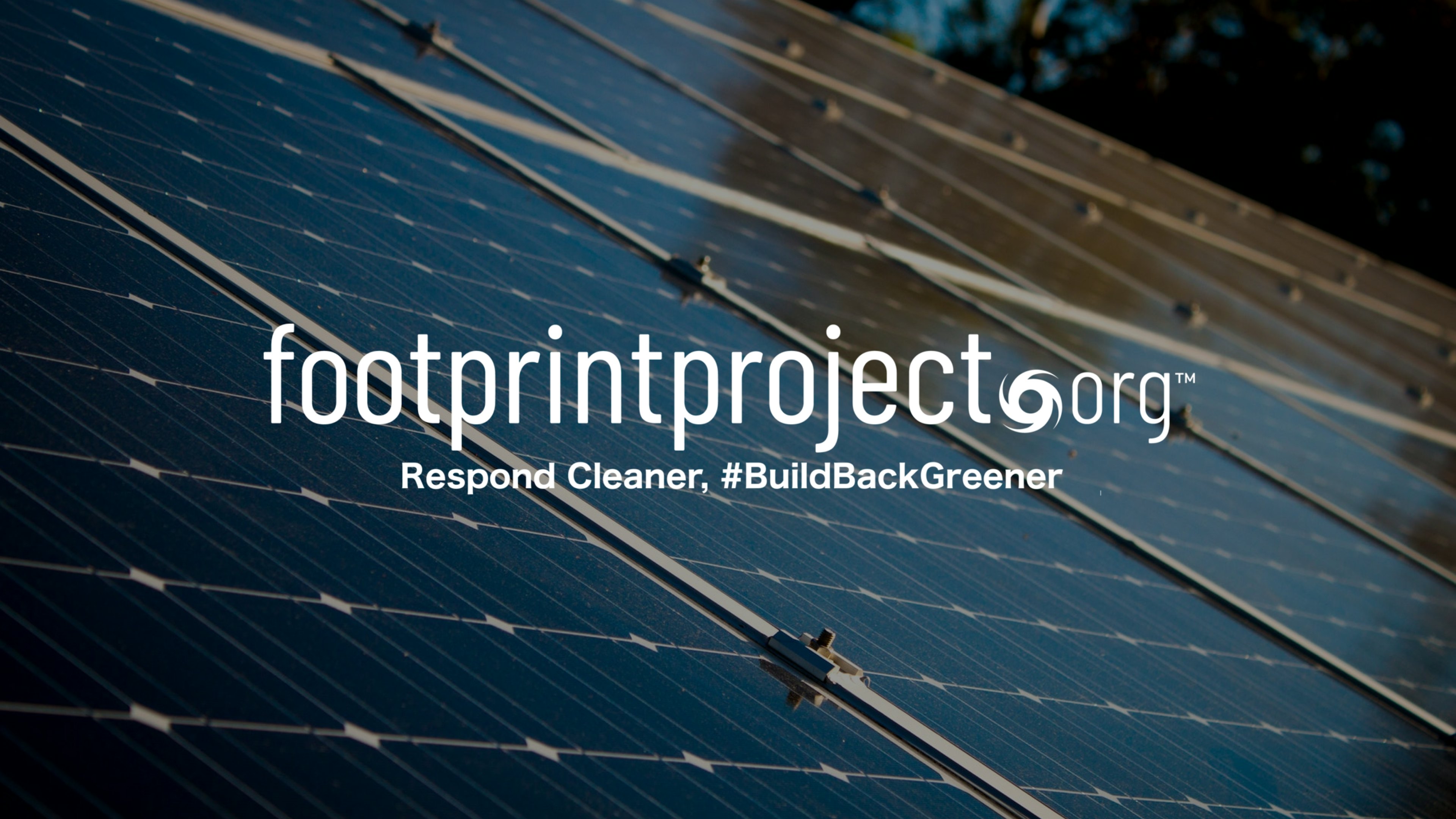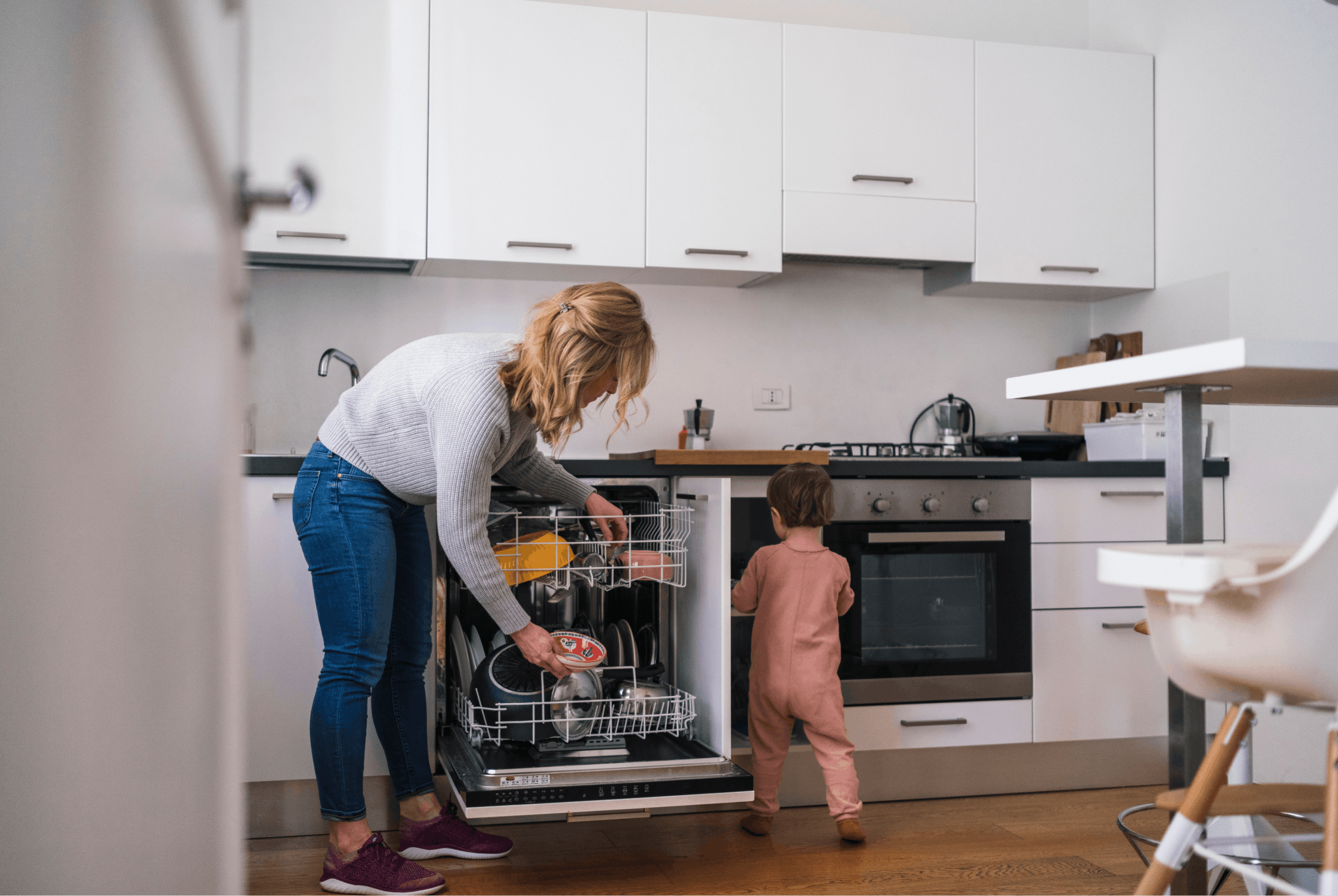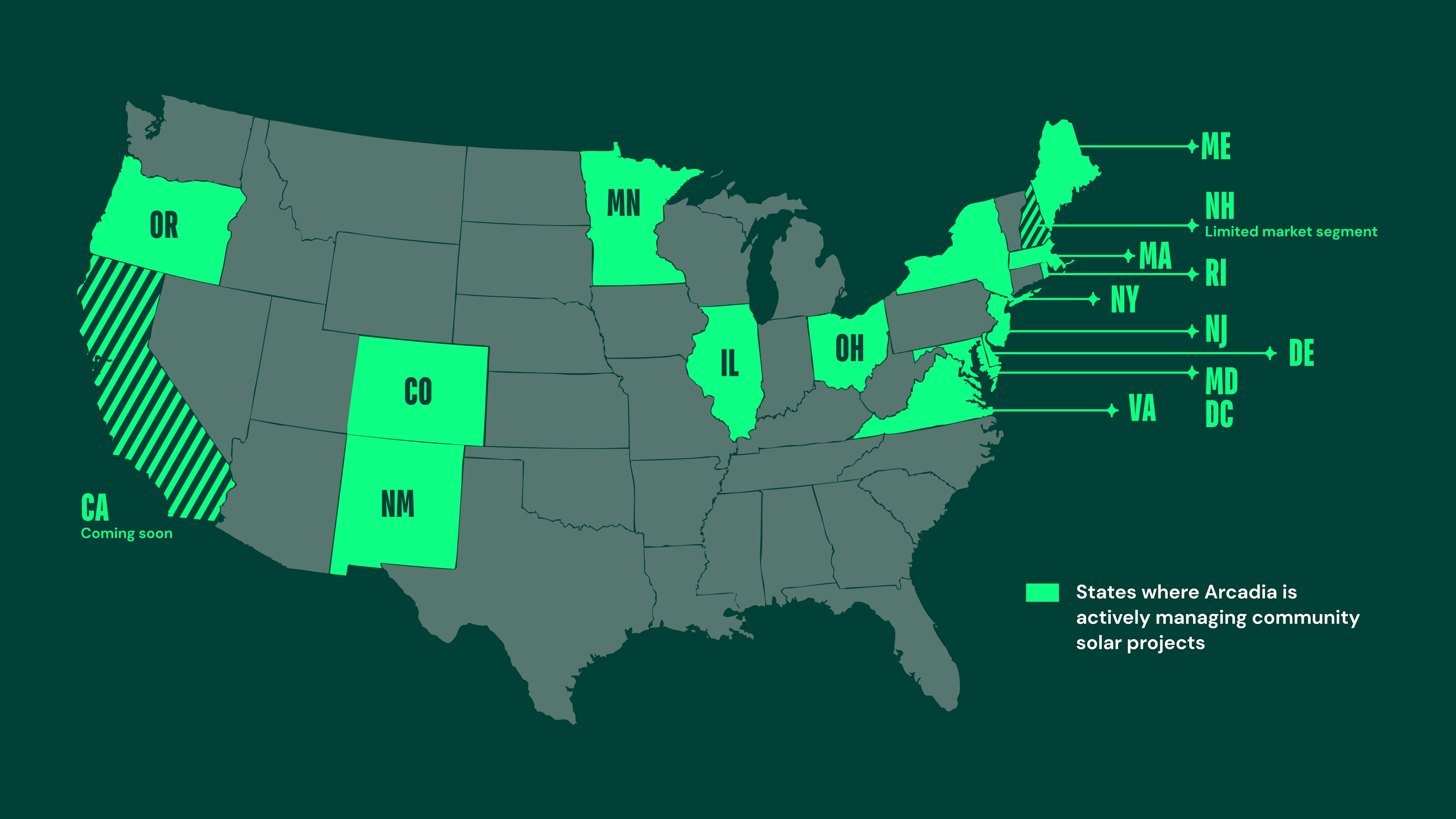Leveraging climate tech for climate disasters: A Q&A with Footprint Project

For this year’s Earth Day, we announced that Arcadia was proudly supporting a nonprofit organization called Footprint Project as part of their Earth Day Coalition. In the fossil fuel-driven disaster relief field, we’re inspired by how Footprint Project is providing cleaner energy for communities in crisis. We spoke with Founder and Operations Director Will Heegaard to learn more.
For those who don’t know, tell us about Footprint Project — your history, what you do, and what you’re working toward.
We started back in May of 2018. From the beginning, our mission has stayed the same: to help communities build back greener by deploying cleaner energy infrastructure for climate crises. 99.9% of disaster aid is still powered by fossil fuels. When major power disasters happen, the traditional response is to send diesel or gas fuel on combustion engine trucks to power generators in order to run refrigerators while distributing plastic water bottles out of shelters made of plastic tarps. It’s a feedback loop. We believe that if we can break that feedback loop of responding to climate disasters with fossil fuel infrastructure, then we can help communities jumpstart their recovery and envision a different future for themselves.
The key to that future is inserting sustainable infrastructure technologies throughout the emergency response phase — to get renewable energy equipment into the hands of first responders, firefighters, the Red Cross, every kind of community responder doing neighbor-to-neighbor relief. Microgrids are a cornerstone of that work.
What does that work look like, exactly?
We’re currently powering an atmospheric generator in Maui, a mobile solar cooler in New Orleans, and we’re staging water makers for hurricane responses in at-risk regions. Ultimately, we want to get the right tools to the right people, the ones in the field. Right now, the wrong things are being sent to the communities that are most affected by climate disasters. They’re being sent the problem, not the solution. Over and over and over again. Footprint Project is out to change that.
Have you found that first responders are open to renewable response equipment?
We’re definitely the “try before you buy” or “try before you rent” org, that helps hold responders’ hands through their own energy transition journey. The disaster community doesn’t have the training to do this on their own — most people haven’t held or touched a solar panel and seen how it works when it’s plugged directly into a battery. We’re here to guide forward-thinking relief organizations toward more sustainable options for their field response. We know that when disaster strikes, they have to make a choice to opt for renewables. They often don’t know sustainable infrastructure is an option, and even if they do, they may not trust it. That’s why we come in and do it for free. We donate our tech ahead of storms, help them deploy it during storms, and train responders in between storms.
Can you tell us about the impact of sponsorships on your work?
Well, we’re very reliant on the community solar space.
Happy to help.
Seriously! Arcadia was one of our earliest champions. They’ve been supporting us from the beginning, and now they’re re-upping their commitment and doubling down on climate tech for climate disasters. That’s important. We usually get most of our funding at the end of the year on the back of a disaster. We deploy to an affected area, it’s in the news, people hear about it, and organizations reach out to sponsor that work. We’re so, so appreciative of that support. Companies like Arcadia are a special case, though. Not only were they one of our earliest supporters — they’ve been with us since the beginning — but they often give before we even know if a storm is going to hit. Our Earth Day fundraising push earlier this year focused on that kind of preparedness.
There’s a throughline with both our work and Arcadia’s: a commitment to equitable solar access.
Community solar is one of the most powerful ways of sharing the love of renewables with people who may not own a home or have the ability to install their own energy infrastructure. There’s a lot of mission alignment between Footprint Project and Arcadia in terms of supporting equitable energy access.
That leads nicely to our final question. We’re two organizations working toward a clean energy future for all — but what are some things individuals should keep in mind as we adjust to our new climate reality?
Our messaging to individuals is less about what you can do to solve climate change (which is such a systemic issue that will require policy work and incentive structures at the federal and global level) and more about practical disaster preparedness. Get to know your neighbors, find out who might need help when the power goes out down the street. People that save lives after disasters are neighbors saving neighbors. Get engaged locally. Go to your next public utilities commission meeting! The best form of climate resilience is community organizing.
Learn more about Footprint Project, and support their work, at footprintproject.org.


